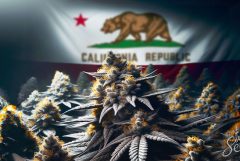It doesn’t matter where in the world you’re from, you’ve got a name for it. This plant – cannabis, ganja, weed, marijuana – is the medicine with a variety of names. You might even be surprised by the history of some of the words you use to address cannabis. This article explores the different names for this plant and where they come from.
Cannabis, Ganja, weed, marijuana—this mysterious plant has so many names that have become universal over the history of its use by human beings. But where did all of these names come from? Humans have been connected to weed for thousands of years and, as our love grew for this plant, we found a plethora of new names for it, an abundance of ways to express how much we love it.
The exploration into the history of its names gives us an insight into the culture of cannabis throughout the world and over time. In some parts of the world it has been most often referred to as cannabis, which is its scientific name, whereas in other parts of the world it has been given names of worship for its spiritual purposes.
Cannabis
Cannabis has become the most commonly used scientific name for weed. It is arguably the first name that was given to it also, appearing in ancient Greek texts as κάνναβις or kannabis. It is probably derived from the Latin word, cannabis, but first appeared in the ancient Greek texts of Herodotus. Despite the fact that the word cannabis has come to be the scientific name for it, the original mention of the word cannabis was in reference to recreational use.
In the texts, The Histories written by Herodotus in 440 BC, cannabis is mentioned as being used in steam baths to encourage relaxation and euphoria. It was mostly for a recreational purpose, rather than for medical purposes. However, there were mentions of its use medicinally in these texts in steam baths also.
The word cannabis did not find its way into the Western culture until the mid-1500s, when it was first added to the Oxford dictionary. In the dictionary, cannabis meant the parts of the plant that could be “smoked, chewed, or drunk for their intoxicating or hallucinogenic properties.” It thereafter became the most commonly used scientific name, even in Western culture.
Marijuana—the name from the West

The most adored plant by human beings was mostly referred to as cannabis throughout the 19th century in America. The word cannabis was used in journals as a name for the medicine that they were using to treat a wide range of symptoms. The name marijuana did not become prevalent until after the Mexican revolution in the early 1900s, and in fact, was a Spanish word for another mixture of herbs.
Marijuana was never actually a name for the plant that we know it for today. It was a name for another mixture of herbs that was used in Mexico for other reasons. The mixture of herbs that was once referred to as marijuana was chewed, and it did not contain the cannabis plant at all. However, during the Mexican revolution, many were crossing the border into the United States with a lot of weed. Wanting to control the influx of weed coming into the country, the USA began their 100-year-long endeavour of prohibition. In their confusion, they called the plant marijuana, not realising that this was incorrect.
Since then, the word marijuana has become the most commonly used name for it in the West, and it has spread to Europe. Marijuana is basically a universal name for it now, with most people knowing what the word means.
Ganja—Is not Rastafarian!
There is a common misconception that the word Ganja comes from Rastafari origins. The word Ganja comes from India, in fact, and the word resembles the name of their holy river, the Ganges. The word Ganja is a Sanskrit word for the Cannabis Sativa plant, a sacred plant that grows along the banks of the Ganges River. It is said that, because of the luscious cannabis sativa plants that grow along the holy riverbank, that it received the name Ganja.
The name Ganja actually refers to a preparation of the plant that is specific to India and is very potent. It was used for medicinal and spiritual purposes in India. It was often prepared as Bhang, a drinkable version of Ganja, which is prepared with a mixture of other herbs and consumed as a tea.
Pot—why is cannabis named after something we cook in?
The word “pot” is a little bit of a mystery in the history of the names of this plant, because it is named after something culinary. It actually has nothing to do with anything culinary, and it wasn’t being used in the USA until after the 1930s. Again, this word is derived from the Spanish word potiguaya. Potiguaya is a word that is taken from the phrase, potación de guaya. This preparation of weed involved steeping cannabis buds in wine or brandy. The phrase potacion de guaya actually translations to the “drink of grief” and was used to relieve the people from grief.
Pot made its way to the USA around the 1930s, and since became a common slang word for cannabis. It is argued that the word weed came about almost in defiance of the word pot, making its way in around the ’70s or ’80s, possibly as a way for children to connect with a plant, without wanting to refer to it the same way their parents did. It makes sense, too, to call the plant weed, because it does in fact grow almost everywhere, and in a wide range of environmental conditions. It has also been a part of the culture of the human existence for an extremely long time.
A plethora of ways to love weed

All the different names have circulated around the world, to the point where it does not really matter which word you use. You will be understood. It seems that this is because people are happy to give the plant that they have loved for so long a plethora of names, many ways to adore it, and many pet names to show their love. It is fun to have so many ways to address cannabis, and different contexts in which to use the different words.
A plant that has so many uses, from economical and agricultural to a spiritual medicine, deserves a name for each of the occasions. All the different names for cannabis give an opportunity for people to connect with the plant in all the different ways that have become part of human culture.











This is all sounds like what the colonists did to the natives and then to the Mexicans, more hurt, more hurt more hurt. This must be some antagonism that was perpetuated by Europeans against other Europeans. They have one tendency of disparaging behavior even in current affairs either from beliefs or practices. Who knows what Mexican leader can achieve a equilibrium with his American counterpart and free this hate they have for families in need of the sustenance of cannabis financially, physically, and mentally. It could be a ploy from Royals against Mexicans for constitutionally not recognizing any royals worldwide cause they would be the biggest benefactors of the market economically speaking. Mexicanos estamos latinos.